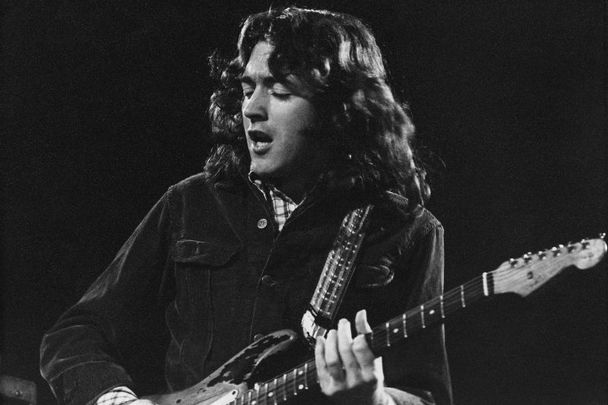Rory Gallagher, known as the People’s Guitarist, was an Irish blues star who was modest, passionate, and all about the music and his Fender Strat. It’s little wonder the Ballyshannon musician is still celebrated today.
Gallagher told Rolling Stone in 1972: “It seems a waste to me to work and work for years and just turn into some sort of personality."
Although he was only 23 when he said this, he certainly stuck to his guns and became known for his non-stop touring and his talent.
Born on March 2, 1948 in Ballyshannon, Co Donegal and brought up in Co Cork, Gallagher, whose albums have sold in excess of 30 million copies worldwide, has a dedicated fanbase around the world, including notably U2's The Edge and Slash.
During the 1970s, Gallagher was invited to play on Chess Records’ “London Sessions” with Jerry Lee Lewis and Muddy Waters. He also recorded with The Rolling Stones and was once in the running to replace Mick Taylor but chose to return to his own band. He toured alongside Bob Dylan and was good friends with Van Morrison.
After forming the band Taste during the late 1960s, Gallagher recorded solo albums throughout the 1970s and 1980s. He was a talented guitarist known for his charismatic performances and dedication to his craft.
Following Taste’s split in 1971, the Donegal man formed The Gallagher with Wilgar Campbell on drums and Gerry McAvoy on bass and released a succession of albums. Among the most successful were "Rory Gallagher" (1971), "Deuce" (1971), and "Live in Europe" (1972).
Sadly, Gallagher died in London on June 14, 1995. He was 47.
"Rory was one of the hardest working musicians around," the Melody Maker journalist Roy Hollingworth remembers.
"The biggest shame about him was that he never really made it in the United States, yet he was one of the best blues guitar players.
"He had true grit…that Irish soul to his playing that the British blues guitarists never had.''
Hollingworth said: "He was an exceptional songwriter. He could play loud and exciting guitar, but the guy was also a poet in the Irish tradition.
"Some people said he was hard to work with, but it was always his band and he had to be the boss…He liked his Guinness, but he was not a raver. He just wore himself out over the years, playing night after night."
* Originally published in 2012. Last updated in March 2025.




Comments